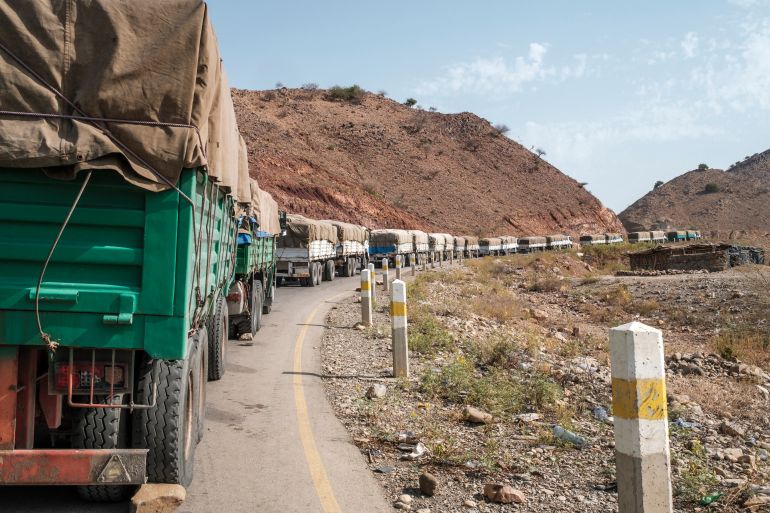Ethiopia needs the world to hold Tigray’s TPLF to its word
The international community now has an urgent choice to make — one it has so far shied away from.

The return of hostilities in the north of Ethiopia last month has devastated the country’s hard-earned progress towards a lasting peace. After almost two years of war and widespread destruction, the fragile hope that communities in Tigray, Afar and Amhara were grasping at has been stolen.
The international community now has an urgent choice to make, one it has so far shied away from. It can either pressure the Tigray People’s Liberation Front (TPLF) to end its violence and enter peace talks, or it can remain silent and embolden them to expand their offensive.
Keep reading
list of 4 itemsRussia-Ukraine war: List of key events, day 799
Austin confirms Russians deployed to airbase housing US military in Niger
‘Blood minerals’: What are the hidden costs of the EU-Rwanda supply deal?
Fresh reports suggesting that the TPLF is now willing to join African Union (AU)-mediated talks are welcome. However, it is important that they are held to their word.
Since March this year, a government-led truce had held strong. The humanitarian ceasefire has allowed unprecedented aid to reach Tigray with more than 4,000 trucks delivering food, medicines and other vital supplies. The World Food Programme confirmed in late July that the immediate risk of famine had been averted.
Fighting in Tigray actually ended in July 2021. The conflict between then and the start of the humanitarian truce was concentrated in the neighbouring regions. The TPLF invaded and occupied towns and villages in Afar and Amhara, bringing untold misery to the Ethiopians living there. Human Rights Watch and Amnesty International have documented the TPLF’s use of rape as a weapon of war, killings of innocent civilians, looting of aid and the destruction of public infrastructure.
The TPLF was pushed back to the borders of Tigray and did – once it was clear its offensive had failed – reciprocate the government’s ceasefire. However, while the Ethiopian government and the Ethiopian people have used the truce to try and secure peace, the TPLF has been bolstering its forces. Reports from numerous sources have suggested the recruitment of child soldiers.
The fact that peace talks were under way makes it difficult to comprehend this latest round of violence. The government outlined its openness to undertake peace talks at “any time, anywhere” and did not insist on any preconditions. The AU’s role as a mediator was welcomed and steps were taken to demonstrate our intent, such as the release of TPLF prisoners.
However, on August 22, just two days before this new outbreak of violence, the TPLF published comments rejecting the AU’s participation in talks and outlined a series of unrealistic conditions that would need to be met in order to even consider engaging.
For too long, it has been left to the Ethiopian government to try and bring the TPLF to the table. I believe the government has exhausted every possible approach. That is why it is now time for the international community to end its silence on the actions of the TPLF and call on its leadership to lay down arms and engage in the AU-led talks.
Time is of the essence. On the day of the first attack, the United Nations and World Food Programme issued an alarm over the theft of 12 tankers with 570,000 litres of fuel from a WFP warehouse in Mekelle by TPLF forces. As the WFP chief David Beasley stated, millions will starve if aid agencies can’t deliver food.
Another round of prolonged conflict is in nobody’s interest, especially the six million Ethiopians living in Tigray. The Ethiopian people want peace and to start rebuilding their lives and communities.
The Ethiopian government will always defend the country’s sovereignty and protect its citizens, but peace and unity are always better than war and division.
The views expressed in this article are the author’s own and do not necessarily reflect Al Jazeera’s editorial stance.
